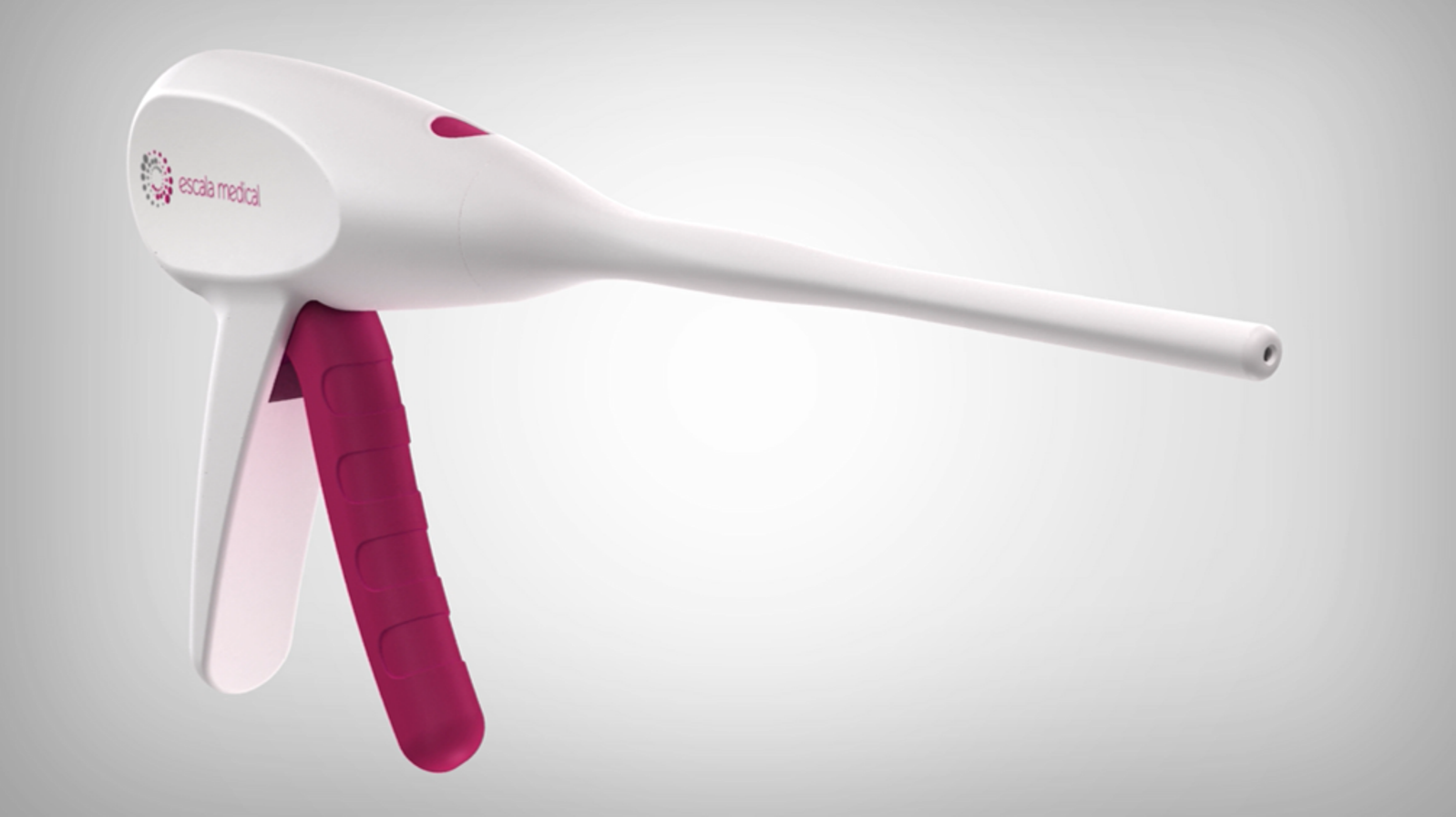One of every three women across the world – including half of all women who have given birth — will suffer from pelvic organ prolapse sometime in her life. And the numbers are increasing as life expectancy and obesity are on the rise.
The condition stems from the weakening of ligaments and muscles that hold the bladder, uterus, vagina and rectum in place, causing them to herniate. The woman feels pressure and pain and may experience incontinence. While not life-threatening, prolapse affects her physical, emotional and sexual quality of life.
Current treatment alternatives include supporting the prolapsed organs with silicone pessaries that provide temporary relief but do not always work; or surgery that comes along with possible short- and long-term complications.
The Israeli startup Escala Medical will soon offer an alternative first-line solution for milder cases of prolapse and can help achieve a better outcome in more severe conditions – especially for women who aren’t good surgical candidates or don’t want surgery.
Escala’s minimally invasive nonsurgical procedure takes about 20 minutes to perform under local anesthesia in an outpatient clinic or doctor’s office. The surgeon uses a vaginal applicator to place an anchor in a controlled and accurate manner within the ligaments, leaving two degradable sutures in the vagina. Button-like securing elements are threaded along these sutures and fixed in place along each side of the vaginal wall.
https://youtu.be/r_livY0vlIQ
After several weeks of healing, the securing element falls out, leaving no device in place. There are no incisions and no follow-up needed, says Escala CEO Dr. Edit Goldberg. The placement and functionality of the prolapsed pelvic organ is restored with reduced complications and minimal patient discomfort.
“Our system is the only non-surgical, incision-free solution,” she tells ISRAEL21c.
“We’ve also developed a retrieval tool so that in case the surgeon decides the anchor is misplaced, he can retrieve it without any damage to the tissues.”
On the market by end of 2017
“Our device offers benefits to all the stakeholders: for patients, it’s a new repair alternative that is safe and quick; for doctors, it’s easy to perform and can reach an untapped patient population. And for hospitals and payers, it allows them to treat more patients at lower cost,” says Goldberg.
Escala is now in the manufacturing and validation phase, preparing to start a clinical efficacy and safety study by early next year. This study isn’t necessary for regulatory approvals because the procedure for fixating the vaginal apex to the sacrospinous ligament already is approved.
“We hope we will be able to file for FDA [United States] and CE [Europe] approvals during the first quarter of next year,” she says. “We expect to have a short time to market, with approvals by Q3 or Q4 of 2017.”

The potential market adds up to $600 million in the United States alone, where close to 400,000 prolapse repair procedures are performed annually at a direct cost of $1.4 billion. Some 3.3 million American women experience pelvic organ prolapse.
By 2050, it is estimated that the global incidence of women with this condition will increase by 46 percent.
“Looking at China, in the near future there will be 100 million women over age 65, translating to over 30 million women with prolapse,” Goldberg points out. “A non-surgical solution could be a game-changer.”
Need for a nonsurgical solution
The device was invented by Dr. Roger P. Goldberg, clinical associate professor at the University of Chicago Pritzker School of Medicine and director of the division of urogynecology; and Dr. Douglas S. Scherr, associate professor of urology and clinical director of urologic oncology at Weill Medical College of Cornell University.
“Dr. Goldberg performed these procedures on a daily basis and saw a need for a nonsurgical solution,” says Edit Goldberg, a former dentist who is not related to the inventor.
She was approached about the concept in late 2014, when she was vice president for new ventures at Trendlines Medical, a startup incubator in northern Israel whose new companies are funded by the Israel Innovation Authority and Trendlines.
Both Goldberg and Scherr are experienced medical device entrepreneurs, she says. “They learned about Trendlines through a patient of Dr. Scherr’s. We did due diligence on the concept and started the company in our incubator. In May 2016, I assumed the CEO position at Escala.”
Dr. David Shveiky, a pelvic reconstructive surgeon at Hadassah University Medical Center in Jerusalem, did all preclinical and cadaver studies for Escala.
The startup is raising funds for the clinical trial and regulatory approval filing, two milestones that will significantly raise the company’s valuation. For the near future at least, Escala will remain in Trendlines Medical at Misgav and will manufacture the devices locally.
For more information, click here.














